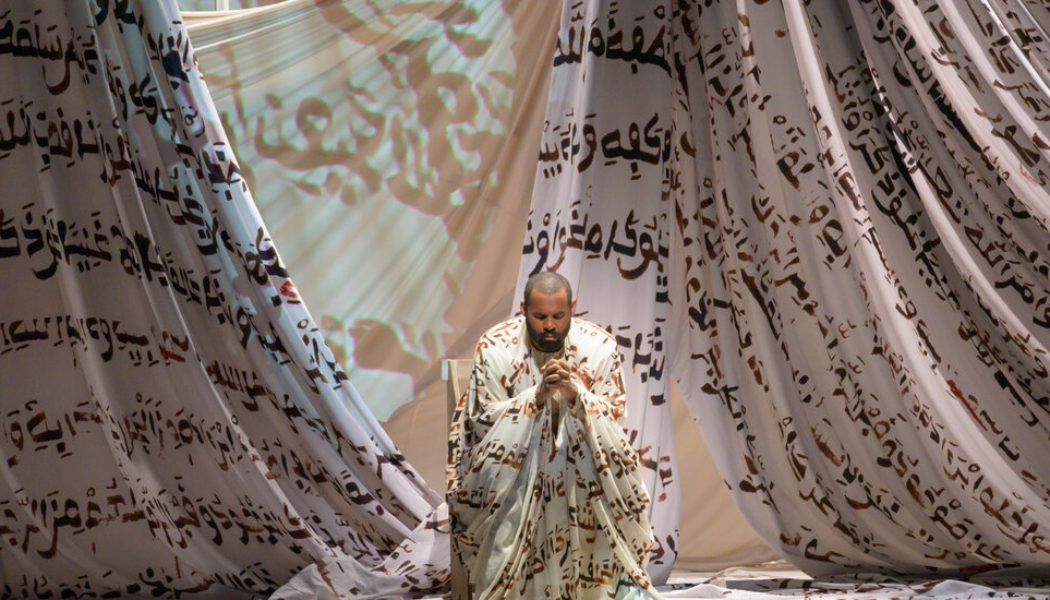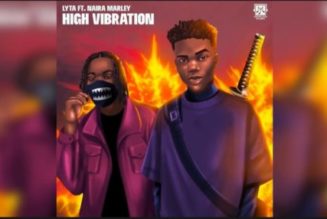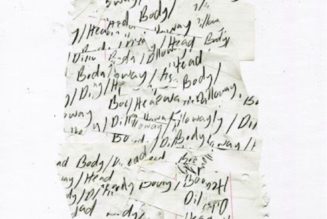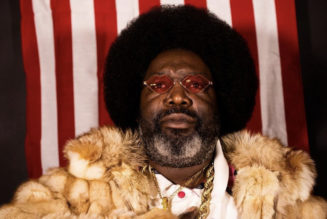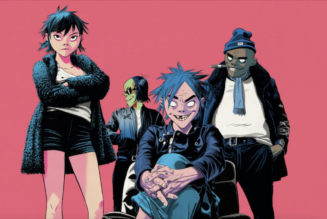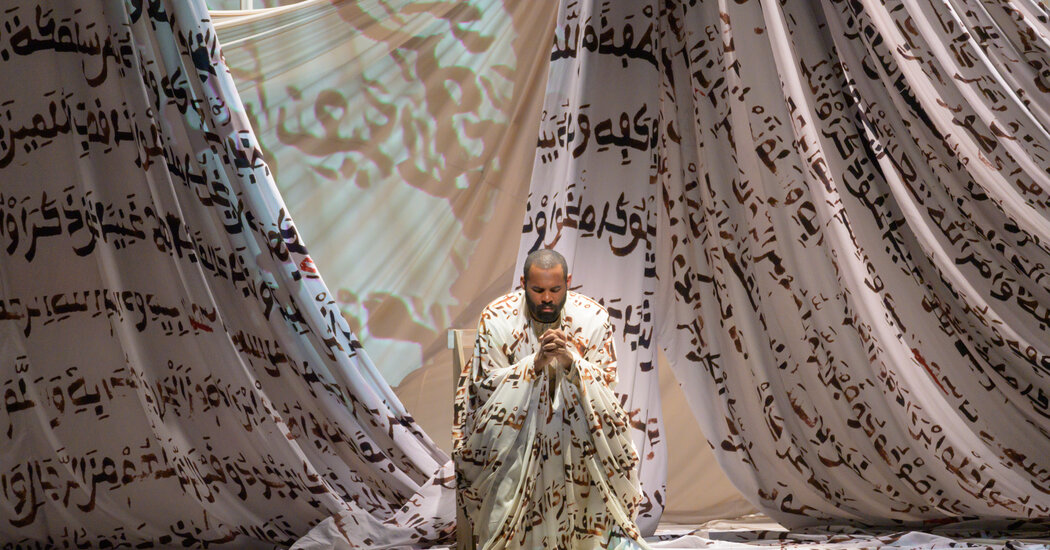
Giddens said that the success of their opera “Omar” proves that “nobody has the lock on being a composer.”
“I mean, look: I’m bowled over right now,” the polymathic musician Rhiannon Giddens said from her home in Ireland on Monday, shortly after winning the Pulitzer Prize for music.
She was speaking in a phone interview with the composer Michael Abels, who joined separately by phone from the United States. Together, they wrote the Pulitzer-winner, “Omar,” an opera about Omar Ibn Said, a Muslim scholar who was captured in Africa in the early 1800s and sold into slavery in Charleston, S.C. It was there that the work premiered last May, at Spoleto Festival USA.
Giddens wrote the libretto based on Said’s autobiography, and recorded self-accompanied demos that Abels then responded to with a fleshed-out score. The result was a multigenre, multicultural swirl — a tour through the sound worlds of Islam, bluegrass, spirituals and more — that I described in my review of the premiere as “an unforced ideal of American sound: expansive and ever-changing.”
Abels has written for concert halls and films, including the “Get Out” soundtrack. Giddens is most famous as a folk musician but trained as a classical singer and has dipped her toes into opera in recent years, hosting the podcast “Aria Code” and performing works by John Adams. And now, to accolades like Grammy Awards and a MacArthur “genius” grant, Giddens, who never studied composition, can add the Pulitzer.
“Nobody has the lock on being a composer,” she said. “We’ve got to stop with separation and who gets to be called a composer. There are a bunch of people who could write the next ‘Omar.’”
In the interview, during which their phones could be heard ringing with calls and congratulations, Giddens and Abels reflected more on the creation of their opera and looked ahead to its future and theirs. Here are edited excerpts from the conversation.
Where are your heads right now?
RHIANNON GIDDENS It feels amazing, because Michael and I just put into this what we know. It was a love letter to my country. There’s so much to hate about it, but what I love about it is that ability that people have to come together and make some new amazing thing. American music is a spectrum.
MICHAEL ABELS It shows the importance of telling all of our stories through our fine art, that people are waking up to the truth of that statement and the importance of our stories’ being part of our full artistic legacy. I’ve just come from seeing a couple of the shows in Boston, where it was playing to sold-out houses [at Boston Lyric Opera]. In each city, you’ve seen people who have never come to the opera before, feeling seen and feeling moved and being welcomed into an artistic space where they haven’t felt welcomed before.
Rather than following the traditional route of a dramatic ending, the opera winds down with a communal, spiritual experience. Can you talk about why?
GIDDENS There was a lot of instinctual writing. If you’d asked me this as I was writing the ending, I’d say, “I don’t know, I just need to do it this way.” Because the autobiography is so scant on details, I knew immediately that having a conventional narrative was not going to work.
There have been American operas dealing with very American topics, but for African Americans, we had “Porgy and Bess.” It’s a beautiful opera, but now we’re starting to tell our stories. And we have to think about the story we’re telling, and how we want the audience to walk out of the theater. The end had to be about him and his faith, and it had to be about healing.
ABELS It didn’t occur to me that it was unusual, that the first part was narrative and the last part wasn’t. Everything ended up where it needed to be. As a performing artist, [Rhiannon] constructs evenings for audiences all the time. I think her understanding that we need to take care of the audience at the end of this work comes from her being a performer.
GIDDENS It shows that you don’t have to do it the same way everybody does it. I have not taken one composition class in my entire life. But I’ve lived composition in a different way.
What does the future hold for this opera?
GIDDENS The Ojai Music Festival commissioned a shorter concert version of “Omar.” And I’m going to be bold and say that I hope today pushes us to a recording. That would be my dream.
And for you two as collaborators?
ABELS Rhiannon is the most talented person I know, in terms of the variety and breadth of talent, and I’m thrilled to be part of her musical life.
GIDDENS I’m not even blowing smoke when I say I don’t know what angel whispered Michael’s name — well, I do, because it was his soundtrack to “Get Out.” But I didn’t know what would happen. I had an instinct that it would work, and I don’t know how I lucked out so much in finding a collaborator. I can’t imagine us not doing more together. Watch this space.
